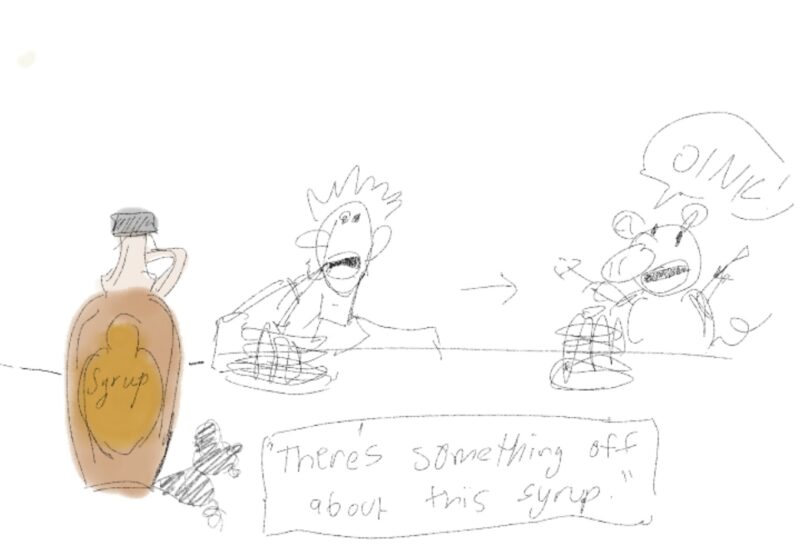“Lincoln in the Bardo,” the upcoming debut novel of George Saunders, brings troubled American history to our troubled American times.
Poetic, spacious, and poignant, “Lincoln in the Bardo” successfully exposes traits of the American people who, given the current political atmosphere, have apparently changed very little since the novel’s setting in 1862.
The book follows the spirits of several characters who live within the bardo, a place that exists after one’s death and before one’s acceptance of it. Here, they welcome President Abraham Lincoln’s son, Willie, who died from sickness in the White House. Saunders’ comfortably uses the historic personas as characters, using clipped excerpts from fictitious journals and letters to describe the president’s life during this time.
Joined by the dialogue of spirits ranging from lieutenants to mothers to slaves, Saunders builds a world driven solely and slowly on answering the question: Do we, the people of the United States, deserve forgiveness?
Readers unfamiliar with Saunders’ work might lose themselves at first. Going through this novel, it is clear that reading previous works “Tenth of December” and “Pastoralia” are calisthenics necessary for completing this marathon sans injury.
Characters often enter and leave without introduction or explanation, the formatting disregards mainstream precedent, and the content itself requires an active imagination from the readers.
The novel asks that its readers simultaneously forget everything they’ve read before, but also use past literature to paint this somewhat upsetting picture. Even so, the raw emotion and poetic prose throughout ensures that readers will at least want to stay connected to the work. If the reader agrees to this compromise, they’ll find it pays off in the end.
Though the novel centers around Willie’s stay in the bardo, it makes clear parallels to today’s circumstances in the U.S. This is unsurprising, considering Saunders’ piece in the New Yorker last summer “Who Are All These Trump Supporters?” in which he recognized the U.S. is “fragile, as an experiment that could, within my lifetime, fail.”
Perhaps the most obvious commentary on this is Saunders’ decision to have segregation between black and white characters outlive death and continue within the bardo. One particularly violent brawl is described as “a fury that suggested the two might well fight on into eternity […] unless some fundamental and unimaginable alteration of reality should occur.”
It’s a sad truth that an American reader can feel lost in literary elements, only to anchor themselves upon institutional racism so familiar they are once again grounded in reality. Saunders doesn’t hesitate to bring this up time and time again.
Still though, the scope of characters in the novel allows for Saunders to remain sympathetic to personas who, I must say, resemble those of the Trump supporters mentioned in his piece from last summer: “We were as we were! the bass lisper barked. How could we have been otherwise? Or, being that way, have done otherwise? We were that way, at that time, and had been led to that place, not by any innate evil in ourselves, but by the state of our cognition and our experience up until that moment.”
Moments such as these align with the concept of thought and acceptance after death. Is cultural cognition enough to exchange for forgiveness? When you separate yourself from what you’ve been programmed to think, are you done?
By asking questions like these, “Lincoln in the Bardo” attempts much of what Lincoln himself did: uniting a divided country. Some Americans may read the book and feel that they are a villain—or maybe for this reason, they won’t read it at all. But for those who do, they will resonate with death, and the idea that we all die.
It’s repeated to the spirits that “you are a wave that has crashed upon the shore.” It could be that Saunders intended for this image to be patriotic (from sea to shining sea) or destructive (being that waves break the shoreline). But whether we like it or not, every wave is a part of a bigger ocean.
“Lincoln in the Bardo” presents the perhaps impossible and definitely terrifying possibility that we’re all going to be stuck together after this tiring and disputing American life. If that’s the case, though, maybe we should just start being a little nicer to each right now—sooner rather than later.





